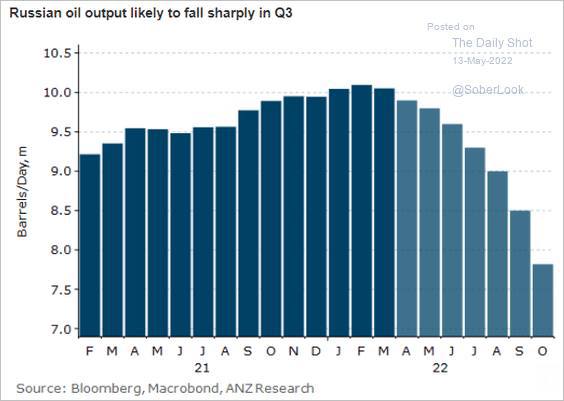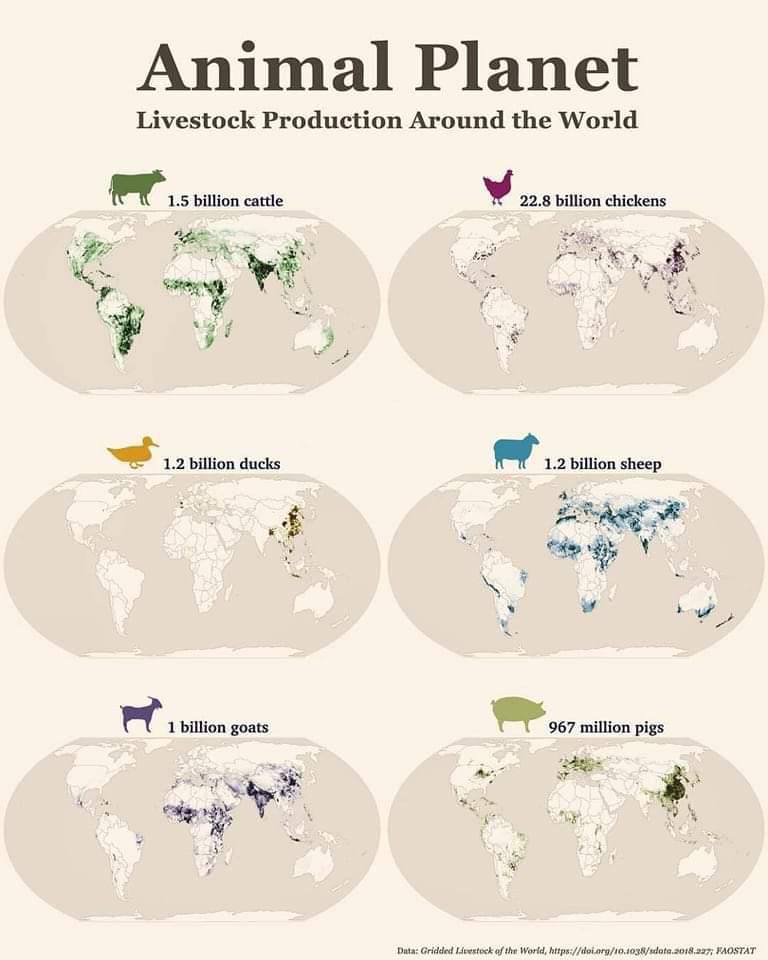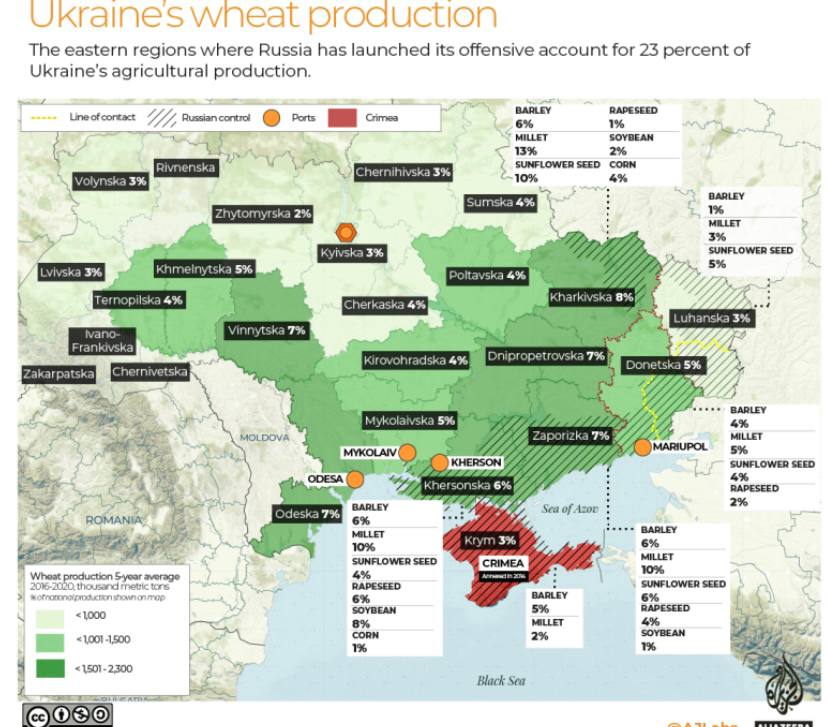
-
Follows2Replies0Views1.0K
-
Follows0Replies0Views1.1KHunger: Apocalyptic warning about soaring food prices
-
The Bank of England chief today issued an 'apocalyptic' warning about soaring food prices and said he felt 'helpless' in the fight against inflation as he told MPs the Ukraine war could yet deepen the cost-of-living crisis.
Governor Andrew Bailey revealed how further food inflation was a 'major worry' for the central bank, with particular concerns about wheat and cooking oil.
He also warned that a ‘very real income shock’ is coming this year as prices spiral at the fastest rate in 30 years and make millions of people poorer in real terms - and that surging inflation would hit household spending, causing unemployment to rise.
Soaring prices for staples have already had a huge impact on food production around the globe and been a key driver of runaway prices squeezing household budgets.
-
-
Follows0Replies0Views838
-
Follows1Replies0Views1.2KHunger: Issues in Pakistan due to heat
-
On Thursday, May 12, a heat wave in the southern Pakistani province of Sindh, where the country's largest agglomeration, Karachi, with 14 million inhabitants, is located, a warning was issued about a possible increase in temperature to plus 50 degrees. Now it reaches plus 48 degrees. The high temperature leads not only to numerous fires and huge loads on the electrical networks, which in Pakistan should be noted and without natural disasters do not work in the best way. The main trouble of what is happening is not even that hundreds, and maybe thousands of people die due to heat stroke. The main problem is that the main water artery - the Indus River is getting shallower, the volume of water in the river, according to some estimates, has fallen by 65%. What does this mean? In Pakistan, 90% of all land is irrigated, i.e. require well-established operation of irrigation canals fed by water from the Indus basin and its tributaries, the total length of this system is 60,000 km. In addition, about half of the contribution to agriculture is made by pastoralism, which means that drought destroys pastures and leads to the death of animals. Thus, farmers and livestock breeders are already suffering losses and will continue to bear them.
Pakistan is a predominantly agricultural country, half of the total population is employed in agriculture and the contribution of this sector to the economy is equal to 20% of the country's GDP. The staple food crops of Pakistanis are rice and grains. Of the 220 million people living in Pakistan, 64% live in rural areas - 140 million people, of these 140 million people 4/5 are constantly food insecure, it's not that they are starving, but that the calorie content of their diet is at its lowest level, almost on the brink of survival. This means that 112 million people in Pakistan - half of the country's population - are constantly one or two steps away from hunger. And now a country dependent on irrigation for 90% has lost two-thirds of the water support of the Indus. Pakistan is a food exporter, but a drought can change everything, because lack of water will have a detrimental effect on future crops. While it is difficult to give specific estimates of grain losses, for example, in the Indian Punjab, due to the heat, the grain harvest is expected to be 25 percent less (50% according to some estimates), but for India this is not so critical because the heat wave did not affect the rice-growing south of Hindustan, and therefore India has reserves. But Pakistan does not have such a luxury, Punjab - currently scorched by the sun - is the breadbasket of the country, and the longer the heat lasts, the lower the water level in the channels that deliver water drops and the less the coming harvest of rice and wheat. A 25% reduction in the wheat harvest means that out of 25 million tons of grain, Pakistan will lose 7-8 million. And in poor countries, bread, especially in times of famine, for the poor is the backbone of nutrition, which is diluted with rice and corn on good days, here only these cultures will also suffer. For them, I cannot give an accurate estimate of the losses, but it can be expected that out of 10.8 million tons of rice, an extremely moisture-loving crop, and 6.3 million tons of corn, an ordinary crop, they will harvest much less, which means that the army of the hungry will increase.
There is no doubt that in order to save the population, Pakistan will stop exporting food, but the government will not be able to do anything with the fall of the Indus. In Pakistan, a country where half of the population eats wholly or partly from the fields rather than being bought from a store, burned grain or livestock dying in the pastures would mean starvation. It is unlikely that people will just sit and watch what is happening. In Sindh, farmers and pastoralists have already taken to the streets to demand a solution to the water problem. The rainy season is still at least a month away, and these kinds of food riots are likely to become more numerous. Even if the rains come sooner, Pakistan may have to turn to help to compensate for losses in agriculture, as it is tight on its own money (recently concluded a loan agreement with Saudi Arabia for $ 8 billion). And the whole world will have to save Pakistan, because this is not Sri Lanka, which you can score on, but a nuclear power whose instability threatens the security of the entire region. The only question is whether the world community will succeed with the necessary support.
-
-
Follows0Replies0Views943Hunger: Hunger riots - mass robbery of grocery stores began in Iran
-
In Iran, a panicked population is looting stores after food prices soared up to 300%, depending on the commodity. Iranian protesters took to the streets, smashing shops and food warehouses. In an attempt to deal with the unrest, the government shut down the internet in some regions.
The Iranian authorities tried to keep prices down with subsidies, but government money was not enough for a long time - as soon as the subsidies were canceled, prices soared, putting hundreds of thousands of people at risk of starvation.
The citizens of the country demand the restoration of the old prices for products and the elimination of unemployment.
-
-
Follows0Replies0Views847Hunger: UK's golden era of cheap food is coming to an end
-
The former head of the second largest retail chain in the UK, Sainsbury's Justin King, said that the country's citizens should prepare for high food prices in the long term, and it's time for the government to think about providing benefits, writes The Guardian.
King noted that many families simply will not have extra money to buy groceries. He suggested that in order to provide targeted assistance to people, the state would need "extraordinary amounts." King cited the £20 a week increase in universal credit introduced by the government during the COVID-19 pandemic as an example.
“Perhaps the golden era is over. We have never spent less on groceries before than we do now, and the decline has been long and gradual. So I suspect food costs will go up in the long run. In historical terms, this will not be very much, but it will still require adjustments to the family budget, ”King said.
-
-
Follows2Replies0Views951Hunger: US aim for huge oil prices
-

Due to big drop of oil production in Russia due to US induced sanction, as well as lack of other energy, like gas that will be replaced now by oil.
-
-
Follows0Replies0Views929
Howdy, Stranger!
It looks like you're new here. If you want to get involved, click one of these buttons!
Categories
- Topics List23,990
- Blog5,725
- General and News1,353
- Hacks and Patches1,153
- ↳ Top Settings33
- ↳ Beginners256
- ↳ Archives402
- ↳ Hacks News and Development56
- Cameras2,366
- ↳ Panasonic995
- ↳ Canon118
- ↳ Sony156
- ↳ Nikon96
- ↳ Pentax and Samsung70
- ↳ Olympus and Fujifilm100
- ↳ Compacts and Camcorders300
- ↳ Smartphones for video97
- ↳ Pro Video Cameras191
- ↳ BlackMagic and other raw cameras116
- Skill1,960
- ↳ Business and distribution66
- ↳ Preparation, scripts and legal38
- ↳ Art149
- ↳ Import, Convert, Exporting291
- ↳ Editors191
- ↳ Effects and stunts115
- ↳ Color grading197
- ↳ Sound and Music280
- ↳ Lighting96
- ↳ Software and storage tips266
- Gear5,420
- ↳ Filters, Adapters, Matte boxes344
- ↳ Lenses1,582
- ↳ Follow focus and gears93
- ↳ Sound499
- ↳ Lighting gear314
- ↳ Camera movement230
- ↳ Gimbals and copters302
- ↳ Rigs and related stuff273
- ↳ Power solutions83
- ↳ Monitors and viewfinders340
- ↳ Tripods and fluid heads139
- ↳ Storage286
- ↳ Computers and studio gear560
- ↳ VR and 3D248
- Showcase1,859
- Marketplace2,834
- Offtopic1,320


 Subscribe to this blog
Subscribe to this blog 



